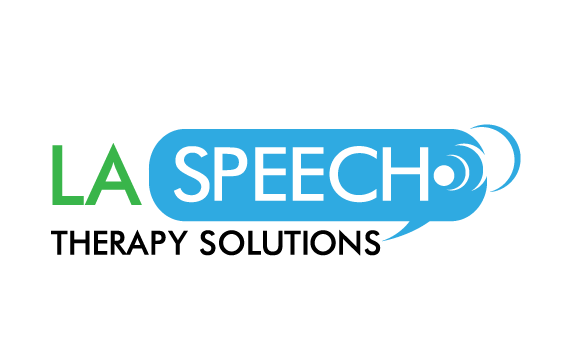
We at LA Speech Therapy Solutions are aware of the difficulties that stuttering can present. You are not alone in your struggle with stuttering, a widespread fluency condition that affects millions of people worldwide. Many factors, such as heredity, neurological variations, and environmental circumstances, can contribute to its occurrence. Stuttering can be treated, which is excellent news. You can overcome stuttering and talk more clearly and confidently with the aid of speech therapy or online stuttering therapy.
Can stuttering speech therapy treat the condition?
Yes, it can! With years of expertise helping both children and adults overcome stuttering, our stuttering therapy specialists can help. We offer cutting-edge, individually-tailored stuttering therapy that is adapted to the particular requirements of each patient. Our strategy includes family training, education, and support, in addition to incorporating the most recent information, research, and evidence.
What is Stuttering?
Stuttering is a type of speech disorder characterized by interruptions in the normal flow of speech. Stutterers may have repeated sounds or syllables, prolonged sounds or pauses, or difficulty initiating speech. Stuttering can occur on any word, but it most commonly occurs at the beginning of words. During stuttering, some people may exhibit physical behaviors such as facial grimacing or body tension.
Stuttering can happen at any age, but it usually starts in childhood. It affects about 1% of the population, with males being more affected. The causes of stuttering are unknown, but it is thought to be a combination of genetic, neurological, and environmental factors.
Stuttering can have serious social and emotional consequences, such as anxiety, social isolation, and a reduction in quality of life. While there is no cure for stuttering, speech therapy can help improve fluency and lessen the negative impact stuttering has on a person’s life.
Signs of Stuttering
Before deciding if speech therapy is right for you, it is important to determine the clear signs of the condition. Your speaking muscles may twitch or move erratically when you stutter. In order for a medical professional to diagnose stuttering, you must exhibit at least one of the following seven important symptoms:
- Repeated sounds or syllables.
This frequently occurs on a word’s opening syllable. After you can say the entire word, you’ll repeat the sound or syllable and then carry on. - Retaining and prolonging specific words or sounds.
This occurs when you become fixated on a sound or syllable and prolong it beyond what is necessary. When you halt in the middle of a word, it’s not required and you should avoid doing so. - Blocking.
This involves frequently halting while speaking, either quietly or with a sound (such as “um” or “ah”). Its name alludes to the sensation that something is preventing you from speaking freely. When you stumble over a word or phrase, you switch to a different word or phrase to avoid stuttering. - Overstressing.
This refers to placing too much pressure or tension on a word’s beginning, middle, or end. Words with a single sound, such as “I” or “the,” are examples of words that can be repeated.
These symptoms may also be accompanied by spasm overflow, gestures or actions that start or get worse when you stammer, and worsened symptoms in response to fatigue, excitement, anxiety, or stress. Those who stammer are more prone to suffer from mental health issues including anxiety or depression. Stuttering can also lead to feelings of irritation, embarrassment, or shame.
Treating stuttering through speech therapy
Now that we know more about stuttering, let’s discuss how stuttering therapy or
online stuttering therapy might be beneficial. Any physical or psychological stuttering manifestations will be readily identified by our full fluency evaluation. This assessment is intended to give our therapists a comprehensive grasp of each patient’s individual needs, advantages, and disadvantages.
When it comes to stuttering, LA Speech Therapy Solutions is aware of the value of early intervention. Early stuttering treatment gives children a better chance of overcoming their fluency issue and developing confidence in their speech.
Our stuttering therapy program and online stuttering therapy uses a variety of evidence-based methods and tactics that have been shown to benefit stuttering children and adults. Some of the methods we employ are as follows:
- Forming fluency.
This method focuses on training the individual who stutters to utilize controlled and relaxed breathing patterns, slowing down their rate of speech, and employing delicate onsets and soft articulation in order to help them speak more fluidly. - Stuttering modification.
Using strategies including cancellations, pull-outs, and prepared sets, this strategy aids the stutterer in changing their stuttering behavior. - Cognitive-behavioral therapy (CBT).
This method aims to assist the stutterer in altering their negative thoughts and feelings regarding stuttering as well as in creating more empowering self-talk and coping mechanisms. - Parent training and support.
We offer parent training and assistance to help parents better understand their child’s stuttering and learn how to support their child’s speech development because we appreciate that stuttering can be a difficult experience for the entire family.
For those who are unable to attend in-person sessions or who prefer the convenience and flexibility of teletherapy, in addition to our in-person stuttering therapy services, we now provide online stuttering therapy.
Online Stuttering Therapy | LA Speech Therapy
We urge you to get in touch with us right away to arrange a consultation with our team at LA Speech Therapy Solutions if you’re looking for “stuttering treatment near me” or would like to learn more about our online stuttering therapy services. Our stuttering therapy experts are committed to assisting both children and adults in overcoming stuttering and speaking more naturally and confidently.





